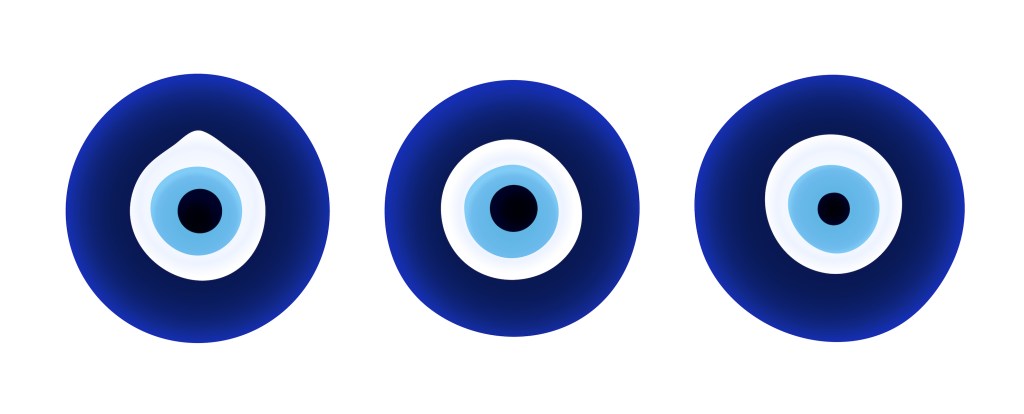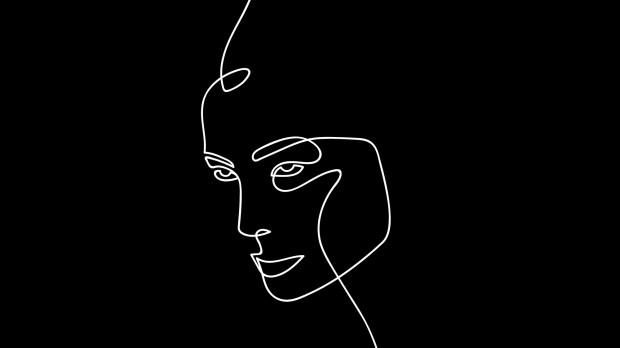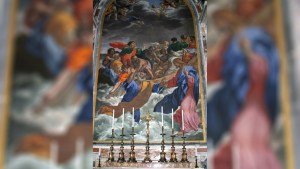At a Sunday Mass, after I painstakingly explained the parable of the workers hired late and why the landowner was well within his rights to do what he did, a stylish parishioner approached me and said, “I still think he was wrong.” And walked away.
But the equation is simple — and shocking: The Kingdom of heaven is like a landowner. Which means that if we don’t like the way the landowner acts, we are not going to like heaven.
All the same, this parable makes us neuralgic. That, however, is probably Christ’s point.
Exposing a killer
The landowner knows what he is doing. He could have avoided a boatload of aggravation if he had simply paid the first group first. Then, once they were gone, he privately could have compensated the last group lavishly, and the first group would be none the wiser. So why doesn’t he do it that way? Because the landowner deliberately wants to provoke the first group. He intends to bring out into the open the disease of envy seething inside them so that, once exposed, it can be killed. This parable, preached just days before Jesus’ death, is told to turbocharge the hearers’ hope, love, and faith. The parable forces us to decide for ourselves what matters most to us.
For if the envy in us is not killed, it is the envious who kill Jesus (see Mt 27:18 and Mk 15:10).
What we hope to receive
The reaction of the grumbling first group proves how much they have made an idol out of justice. Justice is great; I want mercy. That’s my hope.
A poignant story from the life of St. Thérèse of Lisieux: The sub-prioress of Thérèse’s Carmel, Sister Febronie, thought that Sr. Thérèse over-emphasized God’s mercy to the detriment of God’s justice. The two Carmelite nuns engaged each other in a sisterly debate. But Sr. Febronie refused to listen to reason … so much so that Sr. Thérèse finally had to say to her directly: “Sister, you want the justice of God and so you will have the justice of God. For the soul receives from God exactly what it expects.”
The disordered effects of envy are evident in the first group who “worship” justice: “envy corrodes the heart, weakens the understanding, destroys all peace of soul, and condemns us to a melancholy and intolerable existence” (Venerable Louis of Grenada). Because envy is allergic to hope.
Taking “my friend” seriously
Nobody wakes up in the morning and says, “Today I’m going to be envious!” As Servant of God John Hardon, S.J., said, “envy is the only vice in which the sinner takes no pleasure.” So then why does envy get the better of us?
Because envy is insecurity about being loved. Our sorrow over the happiness of another happens when we are not convinced about the reality of love in our own life — that we belong to Another. Envy is spawned by the insufficient way we look at things.

This gets to the literal translation of the word “envy”: “evil eye.” The evil eye takes in some of the situation, but not the whole picture. And because certain key things remain missing from what they see, those with the evil eye become delusional or dead wrong. Or they look at things that they should never view in the first place. In this way, envy is a kind of pornography: setting our eyes on things that can only damage us and fleece us of our own humanity. Dante knew what he was doing in his Divine Comedy: The punishment for the envious in Purgatory is to have their eyes sewn shut with iron wire.
Instead of looking at the landowner’s actions and then assuming the worst about him, the grumblers of the first group should look at the way the landowner is looking at the workers hired late: with compassion, sensitivity, solicitude. Why does the landowner give those who worked only one hour the same as those who bore the day’s burden and the heat? Because he sees their need. And out of his generosity, he gives them more than they deserve because they need it more.
What if, rather than grumbling, the first group let themselves be looked at in that way? For even when a grumbler affronts him, the landowner responds by calling him “my friend.” Instead of accusing and excoriating the landowner who is such a tender-hearted and generous man, wouldn’t it make more sense to appeal to him? If we humbly shared with the landowner the need we are struggling with, what would he do? Answer: break out his checkbook.
Faith in why we are chosen
To believe in the Landowner is to recognize in humility that we are all the workers hired late. The place we hold in the vineyard we have not earned and we do not deserve. The Landowner has come to me and hired me precisely because I am so little, ill-equipped, and last. The last shall be first. I believe in his providence.
The Love that saves us from every envious impulse has died on the cross and risen. Love is offering us what we do not deserve. All we need do is surrender to it.
~
Find Fr. Peter John Cameron’s reflection on the Sunday Gospel each week here.
And follow his series of brief reflections on prayer here.


